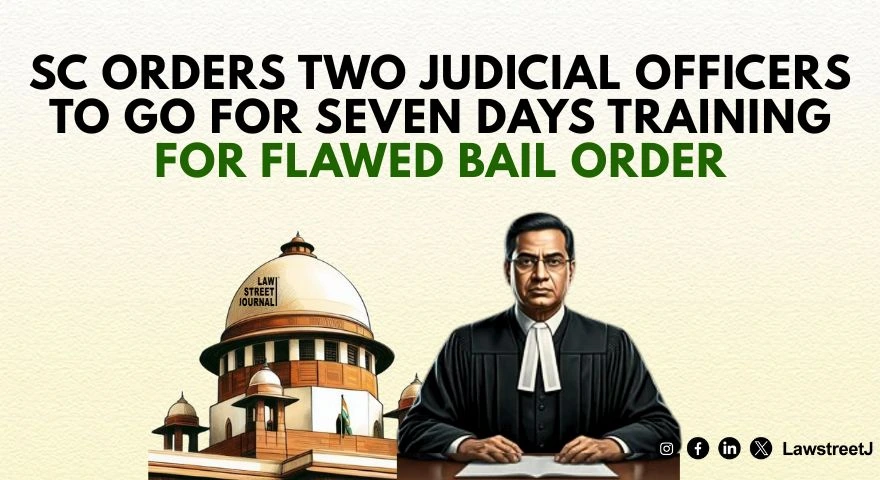NEW DELHI: The Supreme Court has directed for conducting seven days training programme for two Delhi court judges --- Additional Chief Metropolitan Magistrate and the Sessions Judge here --- over their flawed order, granting bail to a couple, accused of cheating a company Rs six crore in the name of land deal.
A bench of Justices Ahsanuddin Amanullah and S V N Bhatti came down heavily upon the two judicial officers, emphasising the bail matters must turn on facts and conduct, and not mechanical reasoning.
"Bail matters are primarily to be adjudicated on the facts and circumstances, before applying any principle of law. In light of the glaring factual matrix, bail ought not to have been granted," the court said.
The bench said it would be failing in its duty if it turned a blind eye to the manner in which the ACMM granted bail to the accused and the Sessions Judge refused to interfere with such grant of bail.
"The judicial officers who passed the orders dated 10.11.2023 and 16.08.2024 shall undergo special judicial training for a period of at least seven days," the court ordered.
The court urged the Chief Justice, Delhi High Court to make appropriate arrangements for such training at the Delhi Judicial Academy, with particular focus on sensitising the duo on how to conduct judicial proceedings, particularly in matters where decisions of superior courts are involved and the level of weightage to be accorded thereto.
Also Watch
The court also ordered the Commissioner of Police, Delhi to personally conduct an enquiry into the conduct of the Investigating Officers and take appropriate action, as deemed necessary.
The bench quashed the bail granted to the couple Dharam Pal Singh Rathore and Shiksha Rathore, accused of duping appellant company M/s Netsity Systems Pvt Ltd in the name transferring certain land in its favour. The FIR was lodged in 2018 on a direction issued in a complaint case.
The court felt, unfortunately, the High Court while passing its order also overlooked the germane factual position and saw the issue as merely being one of cancellation of bail.
In the case, the bench also noted the High Court, in a previous round of litigation, sent the matter for mediation as the accused claimed that they were willing to settle the matter and would pay an amount, as might be determined.
"However, despite the lapse of close to four years, no fruitful result emerged from the mediation process, and in the end, after the charge sheet was submitted, the anticipatory bail applications were dismissed," the bench pointed out.
Disclaimer: This content is produced and published by LawStreet Journal Media for informational purposes only and does not constitute legal advice. The views expressed are independent of any legal practice of the individuals involved.

















